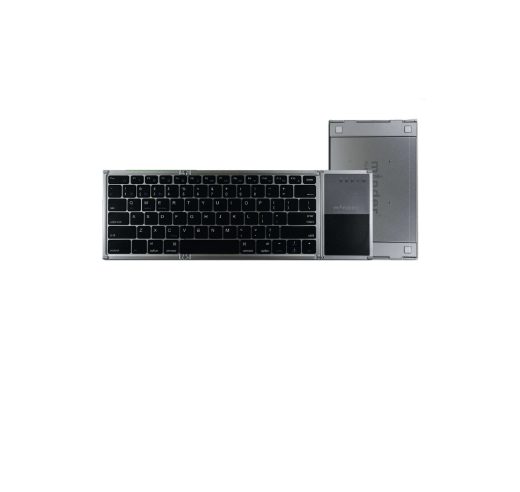The foods we choose to eat every day affect how we look and feel. But, did you know food also affects our ability to think?
Yes, brain food is real and important. Our brain needs fuel in order to function properly. Providing our brain with the correct nutrients is essential to staying concentrated and alert.
Certain foods increase our cognitive function while others make it more difficult to recall information and stay focused.
Here are the 5 best and 5 worst foods for brain health.
The Best
1. Berries
Berries contain a high amount of antioxidants, which help to protect brain cells from damage. Berries also increase the neurons’ ability to communicate with one another. This improves overall cognitive function and prevents memory loss.
2. Dark Chocolate
This treat does so much more than satisfy your sweet tooth. Dark chocolate is a great source of antioxidants. In addition, it has been shown to lower blood pressure. Furthermore, cocoa helps improve cognitive function, especially within the elderly population.
3. Nuts
Nuts provide plenty of antioxidants and omega-3 fatty acids. They also contain Vitamin E which helps to protect healthy brain cells. As a person becomes older, Vitamin E can fight against memory loss. The nuts that contain the highest amount of Vitamin E are sunflower seeds which include 66% of your recommended daily value. Almonds and hazelnuts are also a great source of Vitamin E.
4. Whole Grains
Looking for another excuse to load up on carbs? Me too. Well, here you have it. Whole grains provide plenty of essential nutrients such as Vitamin B, iron, and magnesium, which are linked with improved brain function. Whole grains can be found in foods such as brown pasta, oatmeal, and quinoa. Whole grains also help to keep you energized and can promote weight control.
5. Eggs
Eggs are a nutrient-dense food and they provide tons of health benefits. Eggs contain iron, choline, and Vitamin B6. Choline is especially important for brain health because the body uses this nutrient in order to help with mood regulation and memory function. Other foods high in choline include broccoli, nuts, and fish. Luckily, there are so many ways to cook eggs, so you can always find a way to incorporate them into your diet.
The Worst
1. Soda
Sodas typically contain high amounts of sugar which does not contribute to brain health. Consuming too much sugar has been linked to type 2 diabetes and an increased risk of developing Alzheimer’s. Soda also contains sweeteners such as high fructose corn syrup which, when consumed regularly, can lead to high blood pressure and obesity. Next time you find yourself craving a sugary soda, try reaching for a naturally flavored sparkling water instead.
2. Alcohol
Unsurprisingly, alcohol consumption does not facilitate maximum brain functionality. Regular consumption of alcohol has been shown to impede the function of neurotransmitters, which makes it more difficult for the brain to send communication signals. Excessive drinking can also cause memory loss, confusion, and impaired vision.
3. Refined Bread
Refined carbs such as white bread and packaged baked goods have been linked with poor brain function. These goods have a high GI (glycemic index) which means your body digests them quickly, causing an increase in blood sugar levels. High GI is associated with memory impairment. Refined bread does not contain the nutrients that whole grains have, and can lead to brain fog. Whole grain foods contain fiber, preventing them from being digested too quickly which keeps your blood sugar low.
4. Processed Cheese
Highly processed foods typically have high levels of added sugar, fats, and sodium. Similar to refined bread, processed cheese contains few nutrients which can lead to brain function impairment. This is because saturated fats can cause inflammation in the hippocampus, making it more difficult for you to recall information. Choose low-fat, fresh cheeses such as cottage cheese, which is a great source of protein.
5. Red Meat
Red meat contains high levels of saturated fat, which has been associated with dementia. This is because saturated fat clogs the brain’s blood vessels which impairs memory. Choose a lean protein like a grilled chicken breast or incorporate vegan protein options such as beans in order to reduce your saturated fat intake while still maintaining the protein consumption you need.
Of course, like they always say, everything in moderation. The occasional soda or steak will not lead to memory loss. However, it is important to be cognizant of these foods because when consumed in excess, they can reduce brain functionality.
Luckily, there are tons of easy substitutes for the foods that are linked to cognitive impairment. Choose whole grains over refined carbs, beans over steak, and nuts over processed cheese as a snack.
You can never go wrong with fresh fruits and vegetables, and make sure to incorporate lean protein and dairy options such as fresh eggs into your diet too. These choices, when made consistently, will help to improve your memory and keep you energized throughout the day.















Leave a comment
All comments are moderated before being published.
This site is protected by hCaptcha and the hCaptcha Privacy Policy and Terms of Service apply.